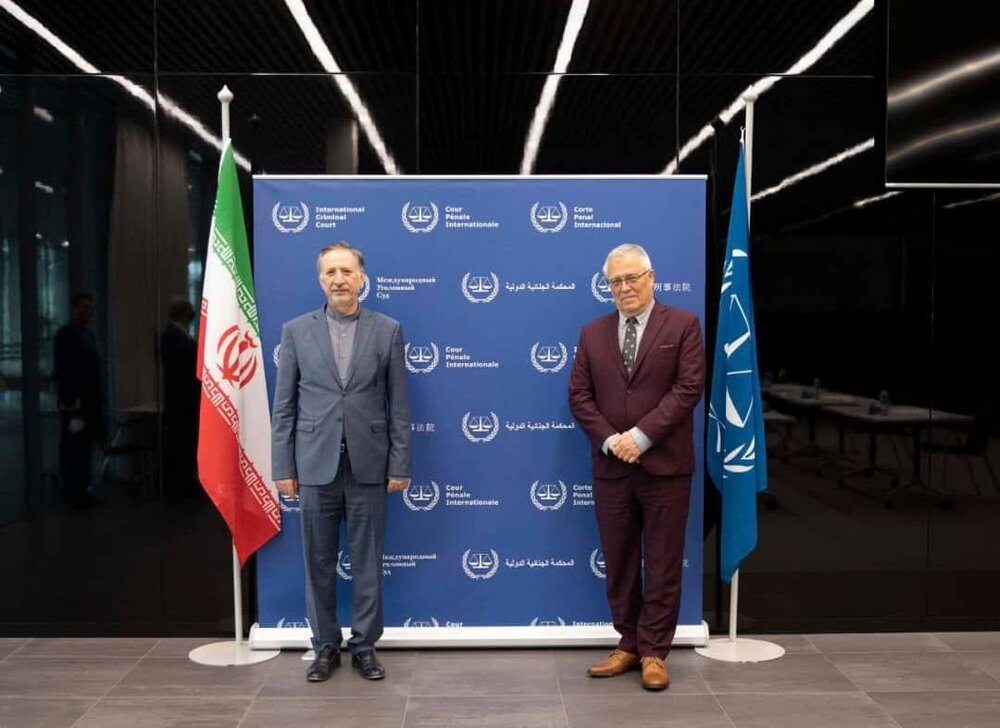Senior Iranian diplomat meets ICC chief

TEHRAN - Iranian Deputy Foreign Minister for Legal and International Affairs Mohsen Baharvand met with Piotr Hofmanski, the president of the International Criminal Court (ICC), in The Hague on Thursday, the Iranian Foreign Ministry said in a statement.
During the meeting, Baharvand and Judge Hofmanski conferred on the latest developments related to the International Criminal Court, including the cases of Afghanistan and occupied Palestine brought to the ICC, the statement noted.
“The Iranian official referred to the ICC president's remarks about a change in the United States' approach to the International Criminal Court, and expressed hope that the U.S. will not impose unlawful sanctions against nations and international bodies in the future,” it concluded.
Also on Thursday, the Iranian diplomat met with Christophe Bernasconi, the Secretary-General of the Hague Conference on Private International Law (HCCH) at the organization's headquarters in The Hague.
During the meeting, Baharvand underlined the importance of the documents developed within the framework of the HCCH for facilitating the exchanges and interactions between individuals and companies and also for the economic development of countries, the Iranian Foreign Ministry said in a separate statement.
He pointed to the latest developments on the process of Iran's accession to the Hague Convention Abolishing the Requirement of Legalization for Foreign Public Documents (the Apostille), and said, “The Islamic Republic of Iran will soon submit the documents of its accession to the Convention after finalizing its implementation instructions in coordination with relevant bodies.”
Last week, Baharvand also met with Fernando Arias, the director-general of the Organisation for the Prohibition of Chemical Weapons (OPCW). The meeting was held on the sidelines of the 25th annual Conference of the OPCW States Parties.
During the meeting, the Iranian diplomat reiterated that Iran has been the main victim of chemical arms in the contemporary era.
“Although more than three decades have passed since the bitter experience of chemical weapons being used by the regime of [former Iraqi dictator] Saddam Hussein against Iranian military troops as well as civilians and even Iraqis themselves, still this harrowing memory cannot be forgotten as those injured in the chemical attacks are still suffering, especially at a time when they have numerous problems gaining full access to drugs and medical equipment due to unilateral and cruel sanctions,” he said. “Iran condemns the use of chemical weapons in any part of the world and under any circumstances, and, at the same time, respects the ideals of the Chemical Weapons Convention.”
Baharvand and Arias also exchanged views on ways of enhancing cooperation between Iran and the OPCW.
The Iranian diplomat underlined the importance of the full, effective and non-discriminatory implementation of all provisions of the Chemical Weapons Convention. He said it is incumbent upon member states to live up to their obligations under the convention regarding the exchange of chemical materials and equipment for peaceful purposes. Baharvand further stressed the importance of removing trade barriers between member states and not imposing economic sanctions on one another.
